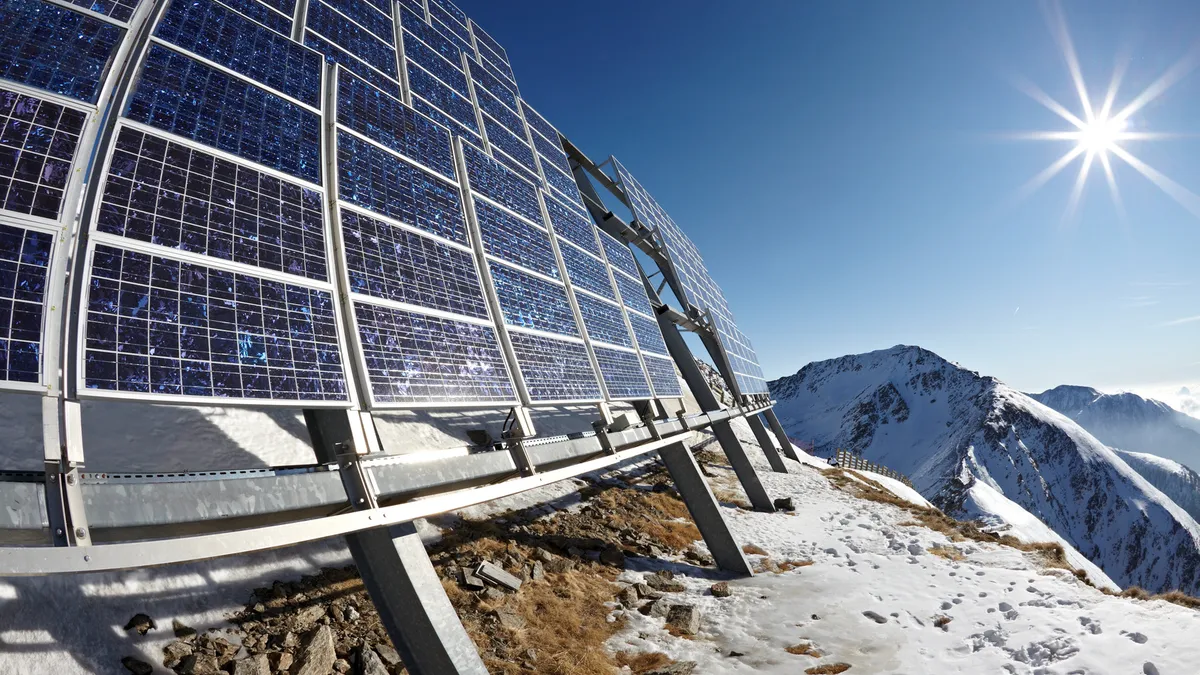Dive Brief:
-
A three-judge panel under the Ninth Circuit Court of Appeals on Monday ruled they could not force the Montana Public Service Commission (PSC) to order NorthWestern Energy to purchase power from solar developers at previously set contract prices.
-
Solar developers filed an appeal with the federal court after the Federal Energy Regulatory Commission (FERC) ruled against the PSC's suspension of rates guaranteed to small solar projects under the Public Utilities Regulatory Policies Act (PURPA), but said they couldn't intervene at the state level. Those developers argued that because the utility locked them out of contracts when prices were $66/MWh, they are owed those rates, rather than the current $22/MWh, which a commissioner was caught on video saying would kill small solar projects.
-
But the PSC said that because they have updated their policies surrounding those contracts, the commission has no responsibility to mend any damages incurred from its unlawful rate freeze. And the court ruled the dispute should be taken care of by the state, rather than enforced federally.
Dive Insight:
It's not yet clear if solar developers will appeal Monday's ruling, but concern remains over what it could mean for the ability of the federal government to enforce PURPA.
"Our core argument ... is that kind of kicking it back to these state commissions, which have shown themselves to be bad actors, is a hollow victory for small producers," Lena Konanova, an attorney who represented Cypress Creek Renewables and qualifying facilities (QFs) in Montana in the case, told Utility Dive before Monday's ruling.
"It really just ensures an endless cycle ... of a state commission doing something unlawful, depriving the small producer of the ability to sell power. Then if all the federal court did was say, ‘Okay, state commission, go try again,' they could just do the same thing over again. ... And we think that would be a terrible result really inconsistent with federal laws."
FERC declined to take action on regulators' 2016 rate freeze for small solar projects, prompting solar developers to file a lawsuit in the federal District Court in Montana. That court ruled that helping the QFs would violate the eleventh amendment, which prohibits the federal government from suing states for past misconduct.
"And we said, 'No, we're not looking for any backward looking relief. We're just looking to sell power prospectively in the future to the utility at the rate that we were entitled to when we formed the legally enforceable obligation [(LEO)],'" said Konanova.
The commission had slashed rates for the solar QFs from $66/MWh to $22/MWh in June 2017. Audio captured Commissioner Bob Lake acknowledging those cuts were likely deep enough to kill small solar projects, and following the video's release, several solar developers in the state filed suit against both the commission and NorthWestern.
In that case, a Montana district court judge ruled in April the PSC had intentionally cut rates to kill small solar projects. The ruling is currently on appeal, but if the appeal is unsuccessful the commission will have to revisit those rates.
Another dispute in the case between the utility and solar developers centered around the interconnection agreement needed in order for them to sell power to the grid. NorthWestern had control over those agreements and in June 2016 stopped processing applications, claiming they were overwhelmed and had the commission put a freeze on payments to the small solar projects.
After FERC ruled against that freeze, the commission revisited those policies, in part preventing NorthWestern from controlling the QFs' ability to enter into contracts. Therefore, the commission argued, the developers' Ninth Circuit case was a moot point, because developers would now have an easier time getting the permits needed to connect.
"If you look at the new rule that the commission has put in place, we took FERC's direction to heart and made a rule that precludes utility control over the QFs ability to incur an LEO," Jeremiah Langston, counsel for the Montana PSC, told Utility Dive.
"So I really think the court's decision reflects that the commission made improvements to its LEO rule, and the appropriate remedy isn't to go back to June 16, 2016, and give the QFs a plainly outdated avoided cost calculation" for what utilities are required to pay solar developers for the power they supply to the grid.















